‘I felt like I had no escape’: Everest hero reveals shocking DV secret
She was the girl who climbed Mount Everest but Brisbane‘s Alyssa Azar would later struggle with something more terrifying than the “death zone”. Now she is taking her life back.
News
Don't miss out on the headlines from News. Followed categories will be added to My News.
She was the toughest girl in the world. Alyssa Azar, the teenager who literally stood on top of the planet – the youngest Australian to do so – at the summit of the world’s highest peak, Nepal’s Mount Everest.
Not once, but twice.
Thwarted in her Everest goal for two years by a deadly avalanche and then earthquake – and lucky to escape with her life – Azar finally conquered the 8848m high peak in 2016, on her third attempt at age 19. It was the culmination of years of preparation, sacrifice, laser focus and sheer will.
Azar then went on to become the youngest Australian to also summit Mount Everest from the northern Tibetan side in 2018 at 21 years of age. Azar appeared, to all who knew her and to those in awe of her achievements, as physically and mentally as strong as they come.
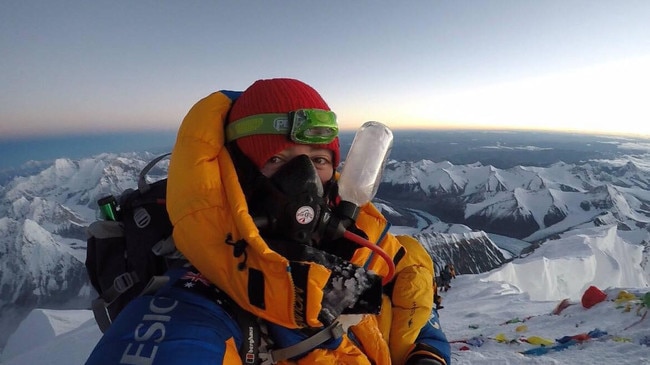
But the ensuing post-Everest years have not been straightforward or happy ones for Azar.
Speaking exclusively to Qweekend, Azar, now 25, has revealed how coming down off the mountain that encapsulated so much of her identity was, in fact, much more difficult than she could believe.
After dedicating her adolescence to achieving the incredible goal, when she succeeded and it was over, she was lost.
Struggling with an identity crisis and loss of self-confidence, Azar then fell victim to a relationship she describes as “abusive and controlling’’ that left her depressed, suicidal and suffering crippling anxiety and post-traumatic stress disorder.
Twice conquering Everest, surviving its infamous “death zone”, trudging past the
200-plus fallen climbers that remain entombed permanently on the mountain and narrowly escaping being buried alive in the avalanche that decimated Everest Base Camp in 2015, was, it turns out, the easy part.
It was back on the ground in her home state of sunny Queensland where she would encounter the most terrifying experience of her life.
Growing up in Toowoomba, Azar fixated on summiting Everest as “a concrete goal” when she was just 14 years old.
She had already been the youngest person to complete the gruelling 96km Kokoda Track in Papua New Guinea at age eight. At 10, she trekked with her father, former Australian Army medic Glenn Azar to Everest Base Camp (5364m) and when she was 12 they climbed all 10 of Australia’s highest peaks. At 14, Azar and her father stood on the summit of Africa’s highest peak, Mt Kilimanjaro (5895m).
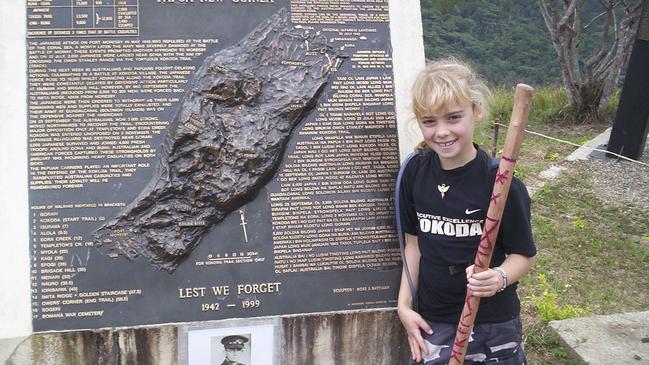
Azar left school at St Ursula’s College in Toowoomba midway through Grade 10, completing the year through the Brisbane School of Distance Education before leaving formal education altogether.
Private, reserved and understated by nature, Azar, 160cm tall and seemingly fearless, devoted everything to her mountaineering ambitions, uninterested in typical teenage pursuits of parties, dating or even friendship groups. She found little common ground with kids her age who were not in the headspace for life-threatening expeditions to the top of the world.
Mountaineering, simply, was her life.
Until it wasn’t.
Slipping back into the “real world’’ after her second Everest summit left Azar feeling adrift and struggling with her identity. She was “the girl who climbed Everest” (which was even the title of a book published about her in 2016). She fell into a demanding schedule of speaker engagements and podcast interviews and working with her dad in his then adventure business. But, ultimately, while high-level climbing was a passion, guiding treks and working the speaker circuit were not.
With Everest behind her, Azar found herself on unsure footing for the first time.
In 2019, with little life experience and lacking self confidence about her identity, she fell into a relationship she describes as “abusive and violent’’.
“I look back now and I can see he preyed on that vulnerability I had. I can see that now as clear as day,’’ Azar says. “He had a certain charisma … now I can see he wanted to know way too much about me way too quickly. I didn’t know him that well but he knew a lot about me. He wanted to make me emotionally reliant on him and started talking negatively about my dad. Dad and I haven’t always been on great terms and he used that to further drive a wedge between us and isolate me from the people around me.
“I shared so much with him, I totally got pulled into that. I can see now that it was textbook manipulation.’’
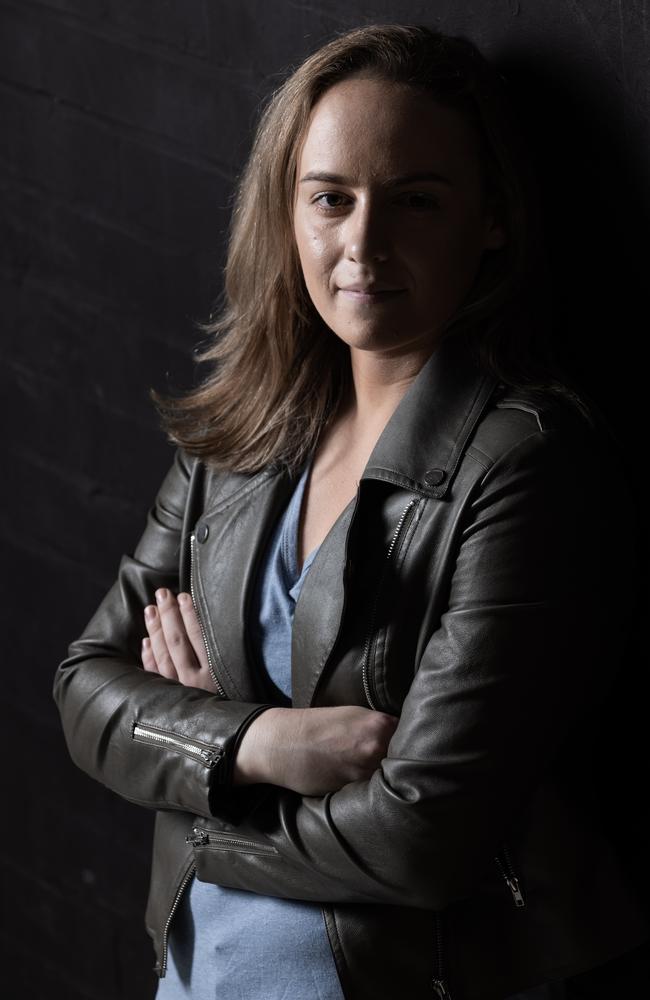
Azar says the man insisted on keeping their relationship secret and would only communicate through encrypted messaging service app Signal.
And soon there were other warning signs that all was not well including unpredictable behaviour when the man would go “off grid’’ and be out of contact for days on end.
He began telling Azar how to dress and wear her hair and makeup. He also wanted her to have a bigger social media profile despite, she says, downplaying her Everest success behind closed doors.
“He made me feel guilty about my Everest achievements – that I was still living off that and downplaying what I’d done,’’ Azar says.
“He wanted me to wear more revealing clothes. I had to wear my hair a certain way, he wanted me to have really blonde hair and wear more lipstick. He got annoyed that I didn’t own any skirts. He would always try to control what I was wearing.
“He wanted me to be a certain way and for no one to know about me. He sent a message to me that if anybody found out that I was seeing him, it would be really bad for me.
“These vaguely threatening messages were to keep me in line. I wasn’t sure what he would do and what he was capable of or how far he would go. I had feelings for him but I started to realise I was really unsafe.’’
Azar says she experienced violence on several occasions including one time when she went to hospital because she was in such pain.
By late 2019, Azar realised she was “completely controlled’’ and living in fear.
“He was definitely in complete control of me and I was pretty stunned that my life had become this,’’ Azar says.
“I was definitely afraid of him … I didn’t want to say anything that would set him off. I always had this general fear.
“This was not me and not the person who I am. I didn’t recognise myself. I didn’t like myself or any aspect of my life anymore. What had my life become? I felt like I had no escape from it.’’
Azar broke it off in late 2019 but this move came with further threatening behaviour. “I wrote to him saying I was sick of this, that it wasn’t the person I wanted to be, that I’m done with this,’’ she says. “He didn’t say anything for 12 hours then I started getting a heap of really abusive messages.
“One said, ‘You’ve really thought this through, haven’t you?’”
The message included a chess piece emoji that Azar believed was a threat in terms of his next move. She believes it referred to a sex tape that had been filmed on her mobile phone.
“I’m dead against that sort of stuff but I’d had some drinks that night and he had filmed it on my phone and then sent it to his phone,’’ Azar says. “I was so uncomfortable with it. But he made sure to film it on my phone so it looked like I was good with it. He was very careful about covering his bases.
“That chess piece was a threat to me. He knew I’d had enough (of the relationship) and I knew what he meant. I took this to mean that he had me; that he knew he had full control over me.
“It was one of the scariest moments of my life. I’ve never felt more threatened because he knew how it would look with it filmed from my phone.
“I felt terrified and completely powerless.’’
With the support of her dad and another trusted friend, Azar finally broke free from the relationship.
She then spent two erratic years “running’’ – moving addresses between Toowoomba, Brisbane, Canberra and Sydney, working in jobs including office administration or as a kitchenhand, as a way, she says, of “hiding from my life’’. Azar deleted all her social media, including an Instagram account featuring her Everest summit photos. She saw her public profile as a possible reason she was picked out and targeted. And so she “cut it away’’. She didn’t want to be watched or controlled; she wanted to take back ownership and regain control of her body and her life.
She suffered crippling anxiety, fear of being around other people, depression and has had serious thoughts of ending her life on several occasions.
“I just wanted to be left alone but I was shouldering it all by myself. I am reserved and private by nature and it was in my nature to withdraw and go within,’’ Azar says.
“But it gets to a point where that’s really dangerous.’’
Often Azar, the second of four children, would not even tell her family she was moving or what was going on in her life and often they feared the worst.
Her family was desperate to save her. Her dad Glenn, founder of the Building Better Humans Project podcast, who works as a mentor and coach, says he was terrified of receiving a phone call to say she had taken her life.
Having worked in the PTSD space with Australian Defence Force veterans, Glenn says he has had “first-hand experience of people not making it’’.
“I found myself in the same boat with Alyssa. I felt I did everything I could. I had tried everything and nothing seemed to work,’’ he says. “She would go off the grid for months at a time and we would have no way of contacting her. Many nights I sat there wondering if tonight was the night I would get that call.
“I watched Alyssa for so many years be this strong, determined and focused teen, and then young woman, who tackled any challenge that was put in front of her. At no stage could I have ever thought something like this could happen to her. I thought she’s too strong, too focused, too independent to allow someone to do this to her. I was wrong.’’
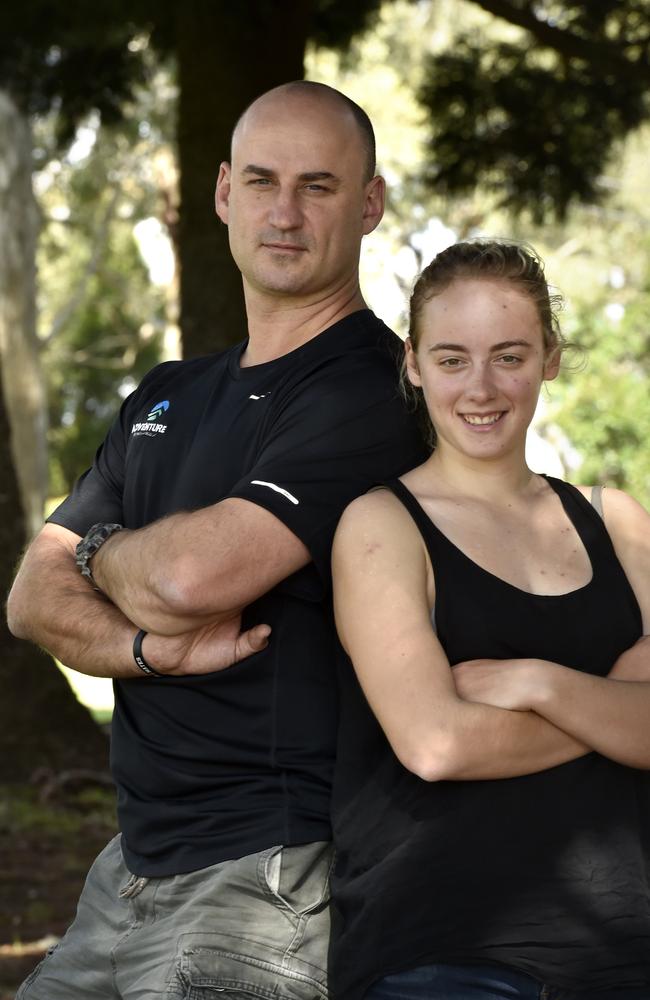
Glenn says his daughter’s experience has subsequently shaped his work in youth development programs, “to make our future generations of men better’’.
In December 2021, Azar finally returned to live in Brisbane where she is now focused on healing and is undergoing treatment for PTSD.
She admits to good weeks and bad ones. She still suffers regular nightmares, waking “terrified’’ once or twice a night. Sometimes she sleeps with the light switched on. “I’m trying to work but I’m on edge around other people,’’ Azar says. “It’s not a lack of motivation. It’s that I have trouble concentrating, I am fearful, I have anxiety and I’m constantly on edge.’’
Azar has been inspired to speak about her experience by sexual abuse survivor and activist and 2021 Australian of the Year, Grace Tame.
She says she could no longer tell her story without telling this part too.
“I don’t want to be the kind of person who sits there and doesn’t say anything. Especially with everything I’ve done, I want to be someone who also contributes my voice,’’ Azar says. “Grace Tame has certainly been an influence on me. I looked into her story and I just love that she didn’t care about who was in power or how it would look. Her courage definitely inspired me to speak out.
“It is important to come forward. People might think it could never happen to you. I didn’t think it could happen to me. But no one, no woman is immune.’’
After going through such a “massive life lesson’’, Azar’s trademark qualities of strength, toughness and determination have been battered. But they are not gone.
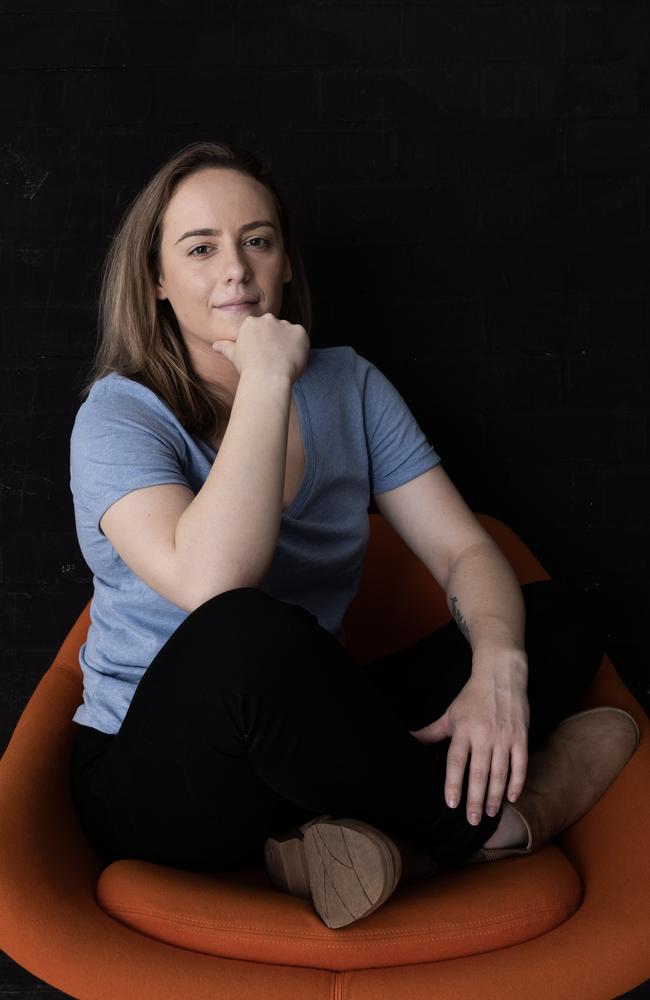
She is focused on her recovery and she can already start to feel what it is like to grasp hold of her life again. After largely neglecting her fitness for a couple of years, Azar is now working out again, boxing with her dad at his gym, Project 180, at Newstead, in inner Brisbane, and feeling “a bit more like myself again’’.
And there are other things to look forward to as well including a big budget movie that is being made about her life leading up to her first Everest summit, by Australian production company Ambience Entertainment.
The project, in the works since before Covid, is in pre-production, with Azar an executive producer. It is tentatively expected for release at the end of 2023. There’s also a new clothing range in the works by adventure clothing and equipment company Mountain Designs that Azar is helping design – called Azar Pro-Elite – to be released at the end of the year.
And, in time, Azar plans to focus on further study and possibly pursue a career in law. She thinks it is probably the path she would have taken if not for mountaineering.
“If I had any advice for someone going to do Everest, it would be to put as much effort in coming down from it after the climb as you do going up. I didn’t think about it,’’ Azar says.
“There was elation to achieve it … you don’t think it’s going to be a struggle after that. You don’t prepare yourself that so much of who you are is wrapped up in that thing.
“Even years on, there’s still a piece of me that thinks, ‘If I’m not doing that, then am I good enough?’ I’m still working through that.
“I don’t know what’s going to fill that space but I’d like to focus on my education and seeing what I can do in a different field. I don’t want to be the mountaineer anymore. I want to know who I am and be really solid in that.”
That’s not to say Azar is ruling out any future mountaineering expeditions and there are a couple of 8000m-plus Himalayan peaks that still spark her interest, namely Makalu, (the world’s fifth-highest peak that “you see from the summit ridge of Everest’’) and Cho Oyu (the sixth highest).
She may or may not one day return to the mountains that made her famous.
But what is certain, after all she has been through and all she has learnt, is that she is done living in shame and fear.
More Coverage
Originally published as ‘I felt like I had no escape’: Everest hero reveals shocking DV secret




